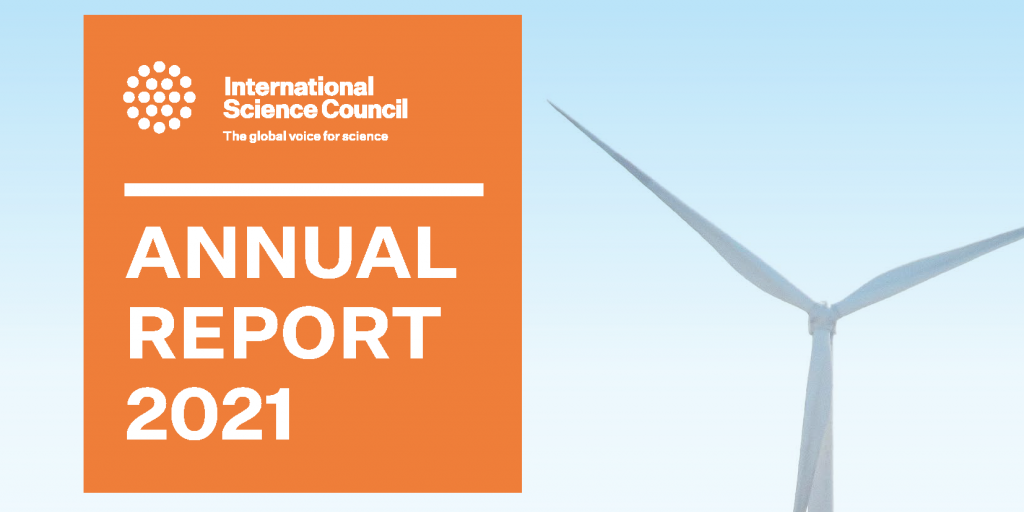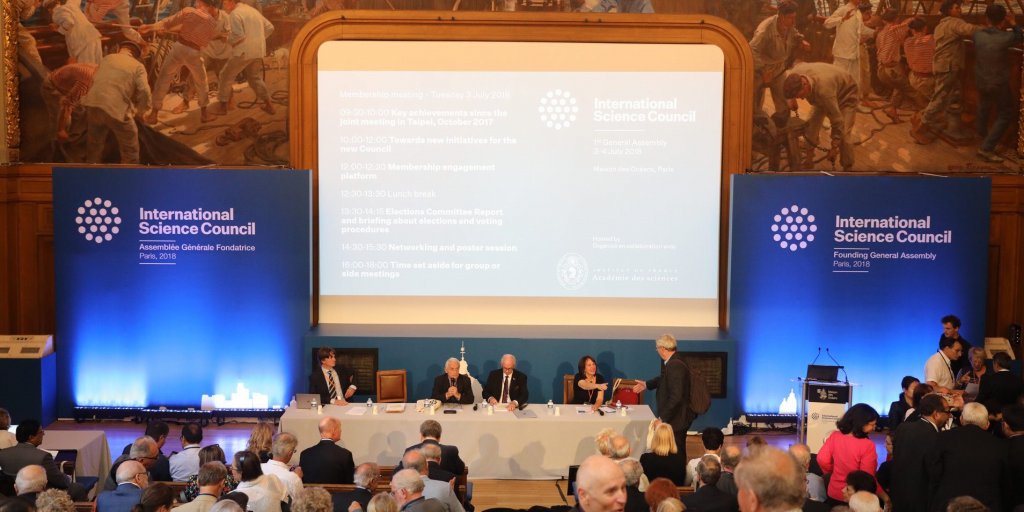The International Science Council (ISC) is the only international non-governmental organization bringing together the natural and social sciences and is the largest global science organization of its type.
The vision of the ISC is science as a global public good. Scientific knowledge, data and expertise must be universally accessible and its benefits universally shared. The practice of science must be inclusive and equitable, also in opportunities for scientific education and capacity development. You can read more on the ISC’s vision in our paper, Science as a Global Public Good.
ISC mission

The mission of the ISC is to act as the global voice for science. As part of that mission, the ISC:
- Speaks for the value of all science and evidence-informed decision-making;
- Stimulates and supports international scientific research and scholarship on major issues of global concern;
- Articulates scientific knowledge on such issues in the public domain;
- Promotes the continued and equal advancement of scientific rigour, creativity and relevance in all parts of the world;
- Defends the free and responsible practice of science.
The ISC convenes the scientific expertise and resources needed to lead on catalysing, incubating and coordinating impactful international action on issues of major scientific and public importance. The Council’s activities are driven by its Action Plan.
The ISC’s activities focus on three principal areas of work:
- Science-for-policy to stimulate and support international scientific research and scholarship, and to communicate science that is relevant to international policy issues;
- Policy-for-science to promote developments that enable science to contribute more effectively to major issues in the international public domain; and
- Scientific freedom and responsibility to defend the free and responsible practice of science.
With a broad range of co-sponsored international research programmes, networks and committees, the ISC’s activities span a broad range of issues, from global sustainability, inequality, urban health and wellbeing and disaster risk reduction, to data, observing systems, and science advice to governments.
ISC structure

The ISC is governed by an international Governing Board which provides scientific and strategic leadership for the organization, and is advised on key aspects of its work by a number of Advisory Bodies. The ISC’s global headquarters are located in Paris, France. A General Assembly of all Members is convened every three years.
The ISC membership provides the foundation for its work. Through its activities, the ISC aims to create opportunities for Members to participate in important scientific conversations and activities, to showcase their scientific contributions at the international level, and to connect to each other and to influential networks worldwide.
Interested in joining the ISC as a Member? Read more
The ISC was created in 2018 as the result of a merger between the International Council for Science (ICSU) and the International Social Science Council (ISSC).
To be a credible champion for the 2030 Agenda, the ISC acknowledges and takes responsibility for its own impact on the environment and integrates sustainability principles into its way of working, both internally and with its Members and external partners. Read more.







